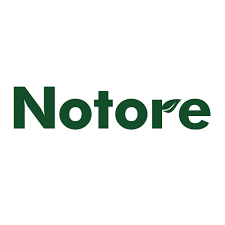A recent Proshare report, “Tier 1 Banks Report: Getting Bigger, Braver, and Dominant – The Class of 2025,” analyzes the Nigerian banking landscape in light of the Central Bank of Nigeria’s (CBN) recapitalization mandate. The report highlights the dominance of Zenith Bank and Access Holdings Plc, the only two institutions to surpass the CBN’s N500 billion share capital and share premium benchmark for international licenses. Zenith Bank leads with N614.65 billion, followed closely by Access Holdings with N594.90 billion, demonstrating their robust financial positions within the industry. Other Tier 1 banks, such as Ecobank Transnational Incorporated (ETI) and Guaranty Trust Holding Company (GTCO), trail with N353.51 billion and N345.30 billion, respectively. This financial strength is a key requirement for banks seeking to compete in the expanding global and continental banking markets. Even some high-ranking Tier 2 banks (referred to as “borderline” Tier 1 banks) are striving to achieve the N500 billion mark to enhance their competitive standing.
The report identifies a significant shift in the banking hierarchy, with ETI overtaking Zenith Bank at the top of the Tier 1 ladder based on asset growth. ETI’s impressive 67.11% asset growth, primarily driven by its operations in Francophone West Africa, underscores the increasing importance of regional expansion in determining market leadership. This shift highlights the dynamic nature of the banking sector and the influence of international operations on overall performance. The report also projects Fidelity Bank’s return to Tier 1 status by the end of the 2025 financial year, despite a substantial N225 billion Supreme Court judgment liability related to its acquisition of FSB International Bank. This projection assumes Fidelity Bank successfully navigates the financial implications of the judgment through strategic liquidity management.
The Proshare analysis delves into the broader implications of the CBN’s recapitalization drive, particularly in the context of evolving customer expectations and banking trends. The report emphasizes the fundamental shift in customer needs, with a growing demand for personalized, bespoke services. This shift necessitates a re-evaluation of traditional banking metrics, moving beyond solely focusing on asset size to incorporate asset growth as a key indicator of market dynamics. In terms of asset growth, the top five performers are ETI (67.11%), Wema Bank (59.82%), FCMB (59.46%), FirstHoldco (56.60%), and AccessCorp (55.49%). These figures demonstrate the aggressive growth strategies employed by these banks in response to market opportunities and evolving customer demands.
While acknowledging the positive impacts of recapitalization, the report also highlights challenges within the Nigerian banking sector. Concerns are raised regarding non-performing loans and the underutilization of balance sheet leverage. The report notes the global trend of exponential growth in off-balance sheet transactions, contrasting it with the relatively limited adoption of such practices in Nigeria. This suggests a potential area for growth and innovation within the Nigerian banking sector to enhance profitability and manage risk more effectively. Despite potential short-term pressures on return on equity (ROE) and return on capital employed (ROCE) resulting from the recapitalization efforts, the report maintains a positive long-term outlook.
The report anticipates that banks will strengthen their capital adequacy ratios and risk management frameworks in response to the recapitalization mandate, ultimately leading to a more robust and resilient banking sector. This strengthened financial foundation will better position Nigerian banks to compete effectively in the global marketplace and cater to the evolving needs of their customer base. The increased capital base will also provide a buffer against unforeseen economic shocks and enhance the stability of the overall financial system.
In conclusion, the Proshare report paints a picture of a dynamic and evolving Nigerian banking landscape. While Zenith Bank and Access Holdings currently lead in meeting the CBN’s recapitalization requirements, the competitive landscape is shifting with other players striving to catch up. The focus is not just on size but also on growth, particularly in response to evolving customer demands and expanding international opportunities. While challenges remain, such as non-performing loans and the underutilization of certain financial instruments, the long-term outlook for the sector remains positive, driven by improved capital adequacy and risk management practices. The report expresses confidence in the feasibility of the CBN’s recapitalization timeline, with a deadline of March 2026, noting that most banks are making significant progress toward achieving the required capital levels.














